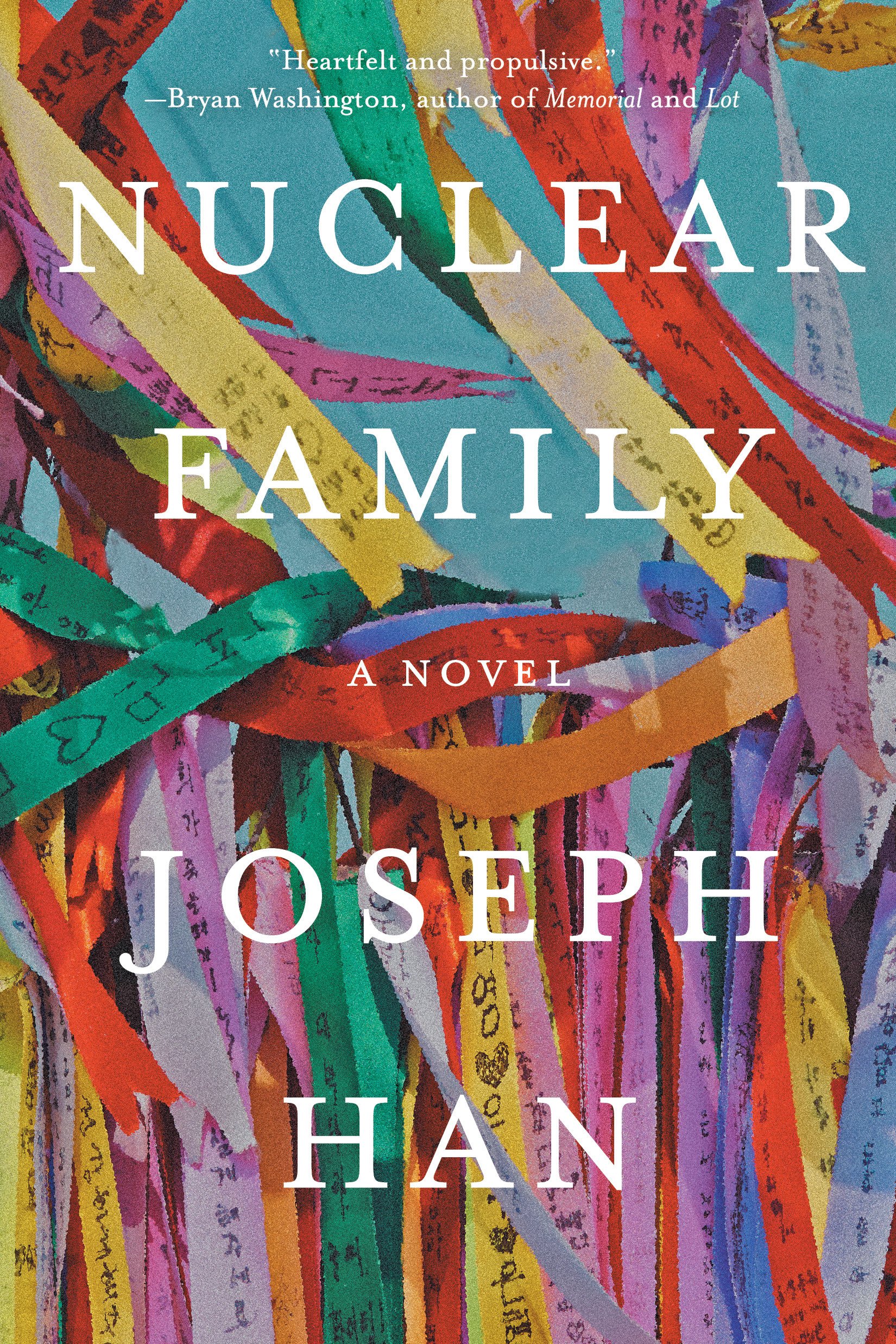Nuclear Family by Joseph Han
Review of Nuclear Family by Joseph Han
Nuclear Family by Joseph Han (2022). Published by Counterpoint.
I am always on the hunt for more Asian-American literature, and when I saw this on a bunch of blogs I get reading material from, I knew I had to check out Nuclear Family.
But, as a major procrastinator who has a massive TBR list, I didn’t get to it immediately when the book came out. It was more along the lines of when I saw it in the new section of the library, months after it had come out, I remembered my initial quest to read it and nabbed it off the shelf.
Nuclear Family was a really easy read for me, as I finished it in about an hour and a half. It’s not too long of a book and the writing itself is fairly clear, so I wasn’t stumbling through the pages trying to understand what was happening.
What interested me most going into this one was the split setting in Hawai’i and South Korea, specifically Seoul.
Those who known about the Asian diaspora in Hawaii would know about the vibrant communities of Asian-Hawaiian culture present on the islands, so it was pleasant to see the Cho family of the book, who run a canteen Korean style restaurant on the island, actually be represented on the page. I don’t think I’ve read or seen a lot of books dealing with the Asian immigrants and their descendants on Hawaii, especially in mainstream literary conversations.
Onwards with the review!
The ghost of one man’s grandfather possesses him while he’s in Korea, leading to international scandal.
As mentioned in the previous section, the focus in this book is on the Cho family. They run a popular restaurant in what I believed was Oahu, and they mainly catered towards other Korean immigrants originally. Their popularity grew with islanders and tourists alike after a television food personality came to their restaurant and raved about the food, leading to the family to cash in on the newfound popularity and business to keep them going.
They open multiple locations throughout the island, but things come crashing down when the eldest son, Jacob, goes to South Korea to find a job as an English teacher and ends up trying to run across the DMZ into North Korea. The family is shocked to see this, and as the local Korean community gossips about them knowing what Jacob did, business begins to suffer.
What we know as a reader because of how the perspectives alternate in chapters is that the family’s grandfather, who died in South Korea and not in Hawai’i, is a ghost trying to constantly cross the border into North Korea.
He always heads into the DMZ and tries to cross the border, but an imaginary wall ends up stopping him. He enlists the help of other ghosts to try and make a human wall of its own, hoping he can catapult over the top and into the North, but that, too, fails and he becomes the joke of the ghost town.
When Jacob comes into town and his grandfather catches wind, he decides to possess the body of his young grandson and cross the border that way. That also fails and effectively ruins Jacob’s life abroad—although he kind of already was depressed, as he wasn’t happy with his life in Hawai’i fully.
The Hawai’i portions of the novel focus on the Cho’s business, the aftermath of Jacob’s stunt, and on Grace, his youngest sister. She’s got her own problems to deal with outside of what just happened, and, as a college student who would rather sit in a car and smoke weed sometimes, she’s trying to find her own ways to cope with life.
She’s pretty angry at her parents because of how they sold their lives to the business, and at Jacob for what he did. The local community is gossiping about them, debating whether the family consists of spies or not, and now she has to deal with this fallout as cockroaches appear in the restaurant.
That’s essentially the novel. Each chapter, we’re bouncing locations and getting the rundown of what’s happening there. While the Chos are unable to contact their son, we get a section on how he feels in Hawai’i, then what life is like for him in Korea after moving.
He’s plagued by fatigue and rashes, and, later on, tries to escape the influence of his grandfather, who literally chases him across the city to get what he wants. There are a lot of disjointed threads in the novel, and I think it’s because we bounce around. It needs more grounding in one perspective, and I think the one that shines the most are the moments in Hawai’i. I think if Han stuck to that mainly, the novel’s execution would have landed better.
Overall Thoughts
I think Joseph Han is onto something in this novel, but loses focus with some of the more stylistic decisions. I liked the writing a lot and think Han is a great writer, but I just really wanted to see more from this novel.
The characters are likable and interesting, but switching around perspectives isn’t effective in the long-run, especially when the novel starts to lose steam towards the end. Things feel more repetitive, but, honestly, a slice of life for this family on Hawai’i running a Korean restaurant.
We have the gay son struggling with his identity, the daughter struggling with life, then the parents dealing with being immigrants to Hawai’i. I’d absolutely love to read that book.
Follow me on Instagram and Goodreads below.


![Jeju-do (제주도) is one of those places that reminds you of how stunning the world is
[7.12.2024 부터 7.14.2024 까지]](https://images.squarespace-cdn.com/content/v1/5ea1f794501b7153b29e7cd7/1721033601522-554E76HR01JUHDWZBJ1I/image-asset.jpeg)







